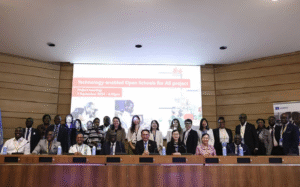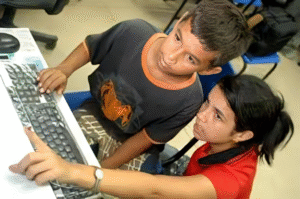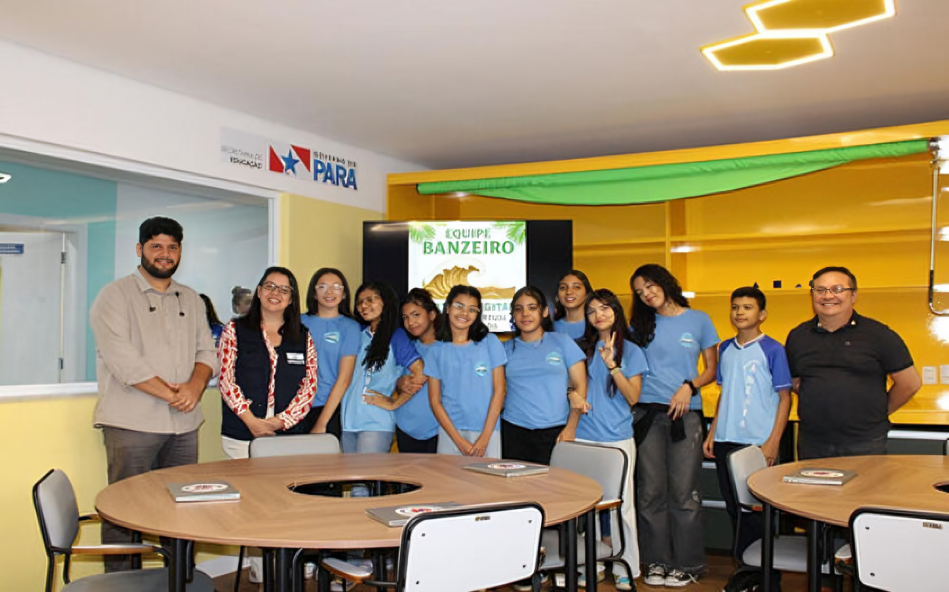Driving Digital Inclusion in Education
São Paulo, Sept. 11, 2025 — The Brazilian Ministry of Education, in partnership with UNESCO and Huawei, has launched the second phase of the “Open Schools for All Through Technology” initiative in the states of Bahia and Pará. The pilot projects focus on bringing digital infrastructure, renewable energy, and teacher training to underserved schools, with the goal of strengthening Brazil’s national education strategies.
The program is part of Huawei’s TECH4ALL digital inclusion initiative and is supported by the Departments of Education of Bahia and Pará.

Key Project Components
The Open Schools projects will equip schools with:
-
Communication infrastructure for improved connectivity
-
Solar power systems to ensure sustainable energy supply
-
Digital infrastructure for classrooms and learning programs
-
Professional development for teachers in educational technologies
Additionally, two teacher training centers will be established in northern and northeastern Brazil by the Laboratory for Creativity and Innovation in Basic Education (LabCrie), with completion expected by the end of 2025.
Building Capacity Through Teacher Training
Delivered through AVAMEC, the Ministry of Education’s virtual learning platform, the program will support 1,000 teachers and students in Jequié (Bahia) and Breves (Pará). Training will focus on sustainable digital education and artificial intelligence, preparing educators to integrate new technologies into classrooms.
“Connectivity, digital tools, and teacher training can significantly improve learning environments,” said Iuri Rubim, Director General of the Anísio Teixeira Institute. “This initiative prepares schools, teachers, and students for the challenges of today and tomorrow.”

A Collaborative Vision for Sustainable Education
UNESCO emphasized the importance of pairing technology with pedagogy.
“No screen will ever replace the teacher, but technology can contribute to building a more open and sustainable future,” said Maria Rehder, UNESCO Project Manager in Brazil.
Huawei echoed this commitment. “The Open Schools program reflects Huawei’s mission to democratize technology and foster an inclusive digital future,” said Elise Machado, Government Affairs Coordinator at Huawei Brazil.
Global Impact of Open Schools
The Open Schools initiative is aligned with UN Sustainable Development Goal 4 (Quality Education) and builds on the successes of Phase I (2020–2024), which reached thousands of teachers and students across Egypt, Ethiopia, and Ghana. Phase II projects are currently active in Brazil, Egypt, and Thailand.
-
In Egypt, the program supports 950,000 teachers through the National Centre for Distance Learning.
-
In Ethiopia, it has reached 12,000 students and 250 teachers in 24 schools.
-
In Ghana, it has supported 1,000 teachers and 3,000 students, while improving national education platforms.
Toward a Green Digital Education Future
By combining innovation, sustainability, and inclusion, the Open Schools initiative is shaping the digital transformation of education in Brazil and beyond. Through renewable energy systems, AI training, and expanded connectivity, it lays the foundation for a more equitable and technology-driven future for students and teachers in underserved regions.




